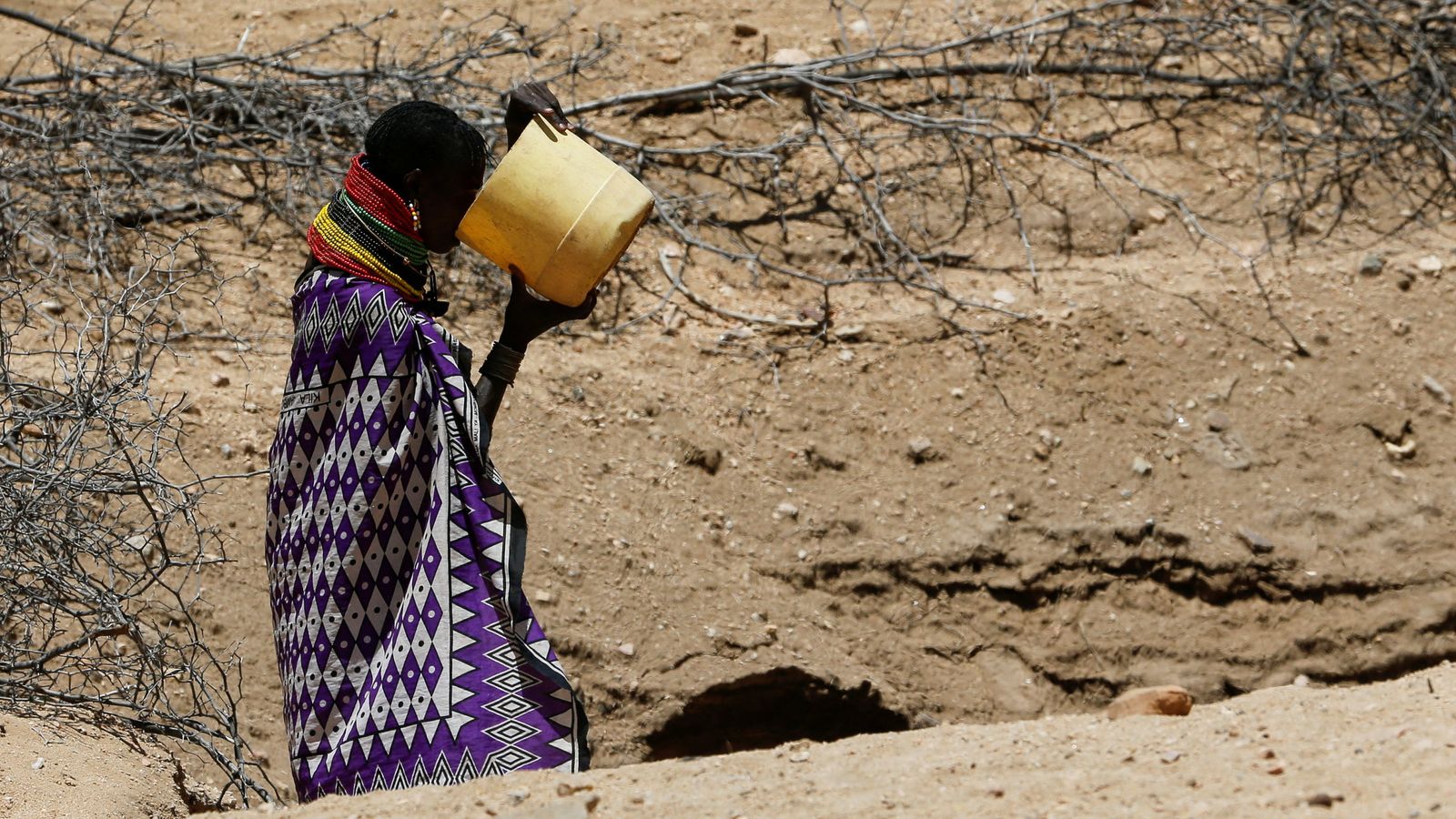Almost two million children in the Horn of Africa need urgent treatment for life-threatening severe acute malnutrition, UNICEF has estimated.
Northern Kenya is facing its worst drought in 40 years, causing livestock and crops to die and many children to starve.
The annual rains have failed across Kenya, Ethiopia and Somalia for the past four years, forcing 1.5 million people to leave their homes in hopes of finding food and water.
The Kenyan president, William Ruto, has declared the crisis a national disaster.
The hunger emergency is accelerated by the war in Ukraine and the aftermath of the pandemic, which has pushed up prices for cooking oil, bread and wheat flour to all-time highs at local markets, UNICEF said.
Now, pastoralists in northwest Kenya have been forced to dig into pits in dry river beds in search for water.
Many children crowd the “stabilisation room” for serious health issues in the Lodwar County and Referral Hospital in Kenya’s region.
Passenger plane flips on its back as it crash-lands at international airport in Somalia
‘The perfect petri dish’: Animal to human disease outbreaks rise by more than 60% in Africa
Ukraine war: ‘Mass death’ of children if no global aid as conflict exacerbates worst drought in 40 years
One woman and her three grandchildren have been affected by the hunger.
Agnes Ekereu said: “All my livestock have died because of the drought.”
Other inhabitants of Turkana County include nomadic herders known for their vibrant beadwork and clothing.
These sub-sections of the community have fewer resources to fall back on, which pushes them closer to the brink.
“I have lost so much,” said Loudi Lokoriyen, a goat-herder searching for water outside the town of Lodwar.
“Close to 300 [goats] have died, 50 camels have died, and they still continue to die.”
Scientists from NASA say that the drought has been caused by climate change and the La Niña weather pattern in the Pacific Ocean.
UNICEF and other aid groups have predicted that the next rains are also likely to fail the Horn of Africa, which will hurt communities not responsible for global carbon emissions.
Mohamed Malick Fall, UNICEF regional director for eastern and southern Africa, said: “It’s not the [countries] ironically that are contributing more to that global emission that are paying the heaviest price.”








